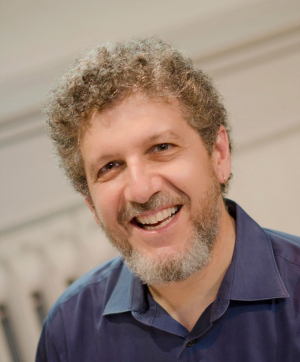By Todd London
This year, for the first time, I have the good fortune to be leading our undergraduate “Majors Seminar,” alongside of Professor Andrew Tsao, the head of our B.A. program, and our new undergraduate advisor Caitlin Goldbaum. This is the course where we introduce drama majors to other working professionals and point them toward the many career paths open to them.
But what are the career paths? Are there any? This is a tricky one for several reasons, not the least of which is that—to be honest—the theatre does not have a solid economic base, nor stable professional tracks, especially for those of us who work on the artistic (as opposed to administrative) side of the field—actors, directors, playwrights, designers, composers. On top of that, the theatre—cultural activity in general—is changing so rapidly that it’s impossible to know exactly what we’re preparing our students for.
In my last letter, I flagged some of these changes and the questions with which we need to arm our students. One of these questions fell squarely in the career category: In this DIY moment, what are the possibilities of amateurism—art for love—and what are the advantages of professionalism? The arts have always been a love sport, and even many of our most professionalized, institutional theatres began from the ground up, growing out of the energy, desire, and talents of amateur (read: unpaid) artists. In fact, outside of the commercial Broadway theatre, professionalized theatre in America is very new, only fifty or sixty-years young.
So what should we tell our students? How can we prepare them for the unknown and economically insecure?
First off, they have to know that their deepest artistic ambitions and drives will take them far. These ambitions—the unstoppable will to make work, including with each other—are their best preparation for the uncertainties ahead. Second, they need to know that few of us working in the professional theatre are still on the path we set out on; the courses of our lives reveal themselves over the course of our lives. Finally, and maybe most importantly, they need to understand that, whatever they wind up doing with their years of creativity and smarts, the theatre can offer an incredible foundation, including in the most important and sought-after skills in today’s world.
Professor Tsao outlined some of these on the board at our first class, and I love his list, to which I’ve added. Theatre trains you in 1) creative problem solving, 2) collaboration and teamwork, 3) critical analysis (even the work in rehearsal is based on understanding and interpreting texts as well as the world around us), 4) inquiry, 5) creative entrepreneurship, 6) leadership skills, and 7) empathy or the ability to imagine other points of view.
On top of it all, theatre artists—amateur or professional—cultivate a unique kind of bravery, the ability to trump our own fears in the face of the unknown. What better preparation can you ask for?
